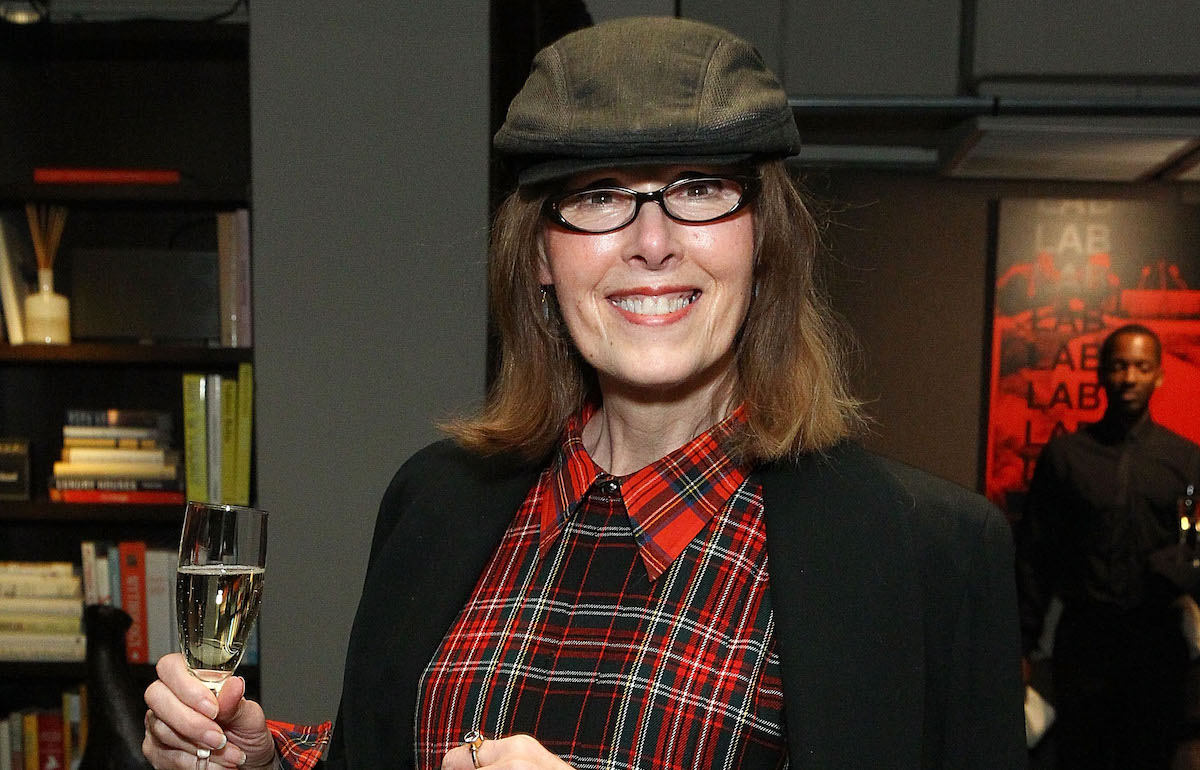Trump Accuser E. Jean Carroll Illustrates Just How Deeply Ingrained Rape Culture Is, Even for Survivors

**Content warning: sexual assault, rape culture and victim-blaming.**
When a person is the victim of sexual assault, there are so many reasons why they might not come forward. Rape culture means that survivors face victim-blaming, criticism of their choices, deep skepticism of their stories, and so much more. And those fears and that sort of shaming don’t always just come from other people. Rape culture is such a powerful force that for many, it can deeply influence how we view even our own experiences with abuse.
The writer E. Jean Carroll recently came forward with decades-old allegations of rape against Donald Trump. Today, she’s on the podcast With Friends Like These to again tell her story. But while discussing what she says happened in a Bergdorf’s dressing room all those years ago, she also hits on so many points of self-shaming. She seems angry with herself that she flirted with Trump, even going so far as to say, “If I hadn’t flirted my brains out, this would not have happened.”
The interview goes to some really uncomfortable (and because of that, really important) places, as host Ana Marie Cox pushes back forcefully against those sorts of statements. Flirtation is not an invitation to rape and it doesn’t matter whether Carroll was laughing or fighting when she says that Trump pushed her against a wall. (She says she did both and both are natural reactions to something like that.)
Neither thing matters in any situation, with any attacker, but as Cox points out, other allegations made by other women against Trump has proven that flirtation isn’t a necessary precursor to his alleged attacks. He is just as likely to allegedly grope a journalist just trying to do her job as he is a woman flirting with him in a department store. None of those women should be blaming themselves for his actions.
In addition to dismissing the idea that Carroll was asking for what happened by flirting, Cox also challenges Carroll’s assertion that what she has accused Trump of doing wasn’t that big of a deal—that it was a “small event”—specifically because it didn’t last long.
“You say in the book and you said just now and you’ve said it in other interviews that this was a small event in your life, it didn’t take very long. Jesus Christ, E. Jean. It doesn’t matter, it was huge. Somebody raped you,” Cox said. “And I’m sorry to say it that bluntly but think about it this way, if I may offer this thought: if another woman came to you and told you this story would you say to her ‘well this doesn’t sound like a big deal and it didn’t take very long and I bet it won’t affect you”?
Carroll, who is a professional advice columnist, says of course not. “No, I would have been all over that woman. I would have told her to go to the police. I would have gotten her into therapy. I would have asked her to call me. I would have told her she’s not seeing clearly. I would not say ‘let’s look at this in a different light.'”
Still, she defends her own choice to frame this event as a small one, saying “My minimizing it keeps me happy. If I thought about it seriously for 30 seconds I’d put a gun to my head. I know on a level how serious it is, because the man is in the White House, but if I really sat and thought about it, it would not be good, so thinking it’s a small few minutes of my life is better for my happiness.”
This interview walks such a delicate line because we definitely need to bust all of these insidious rape culture myths, but at the same time, no one can definitively tell someone else how to process their trauma and that sort of armchair psychology can be dangerous. Cox acknowledges that and says, “Every survivor is different; every survivor gets to heal in their own way.”
Cox and Carroll, though, make it clear that they have a specific sort of friendship that allows Cox to, as she herself puts it, essentially reach through the phone and shake the self-blaming and denial out of Carroll.
The whole interview is definitely worth a listen. It’s an unusually honest conversation about some really complicated and effed up issues too many of us have had to or continue to deal with.
(image: Astrid Stawiarz/Getty Images for ELLE)
Want more stories like this? Become a subscriber and support the site!
—The Mary Sue has a strict comment policy that forbids, but is not limited to, personal insults toward anyone, hate speech, and trolling.—
Have a tip we should know? tips@themarysue.com